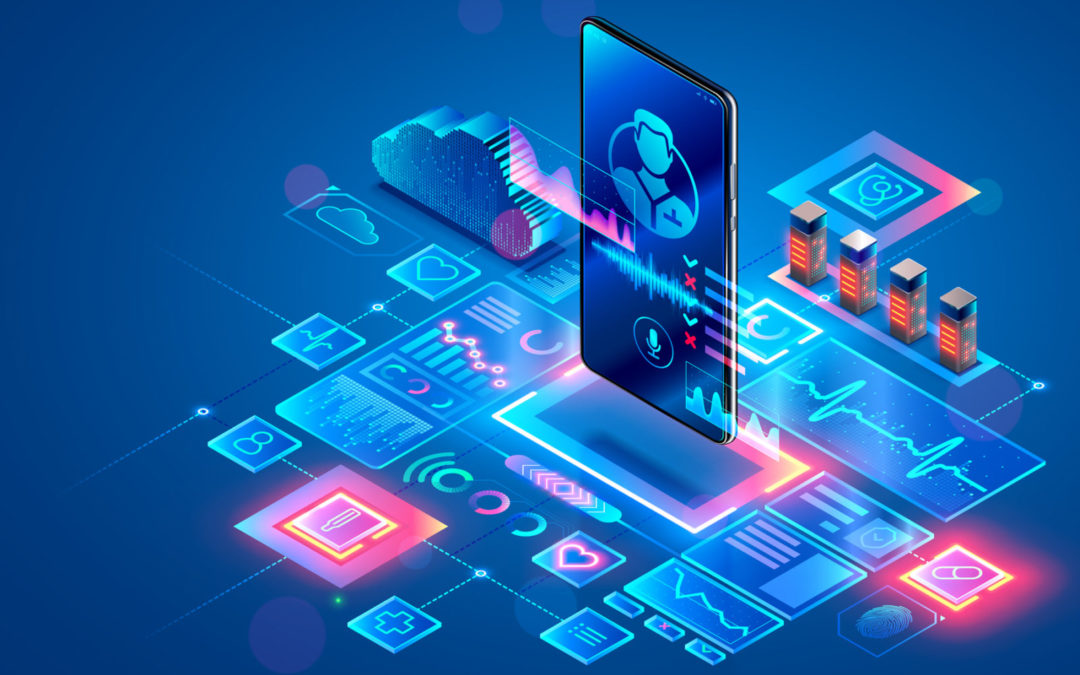It’s not coming; it’s here. If you’re someone who is constantly fretting that Big Brother is watching your every move, well then this post isn’t going to be to your liking – even though you’re possibly reading this right now on the most invasive hosts and platforms of spyware ever to exist.
Remote diagnostics & monitoring, mobile health apps, wearable medical technologies and portable diagnostics, AI for public health… it’s all on the cusp of becoming mainstream delivery of healthcare. And here we were, complaining that our family doctors would not see us in office during pandemic waves. The future of healthcare is embedded in digitization and has been shifting that way well prior to Covid-19.
In addition to telemedicine and electronic patient data, mobile apps and connected devices support remote examinations and diagnoses and offer new forms for the delivery of care, monitoring and management of patients that will fundamentally shift how healthcare is accessed in Canada. These emerging remote care technologies and applications were already in the making; the pandemic just propelled their application. Inevitably, this shift will alleviate burdens on the healthcare system. Wearable technologies and mobile health apps can help prevent health conditions by constantly monitoring the wearer’s health data and health metrics. To be effective, these apps have to store and track information and more often than not, may even send the data to health care providers so they can offer preventative intervention when and if needed. The same concept and concerns apply to AI (Artificial Intelligence in computer applications) taking over diagnostics and public health surveillance of disease by being able to collect multiple data sources simultaneously from around the world. Health professionals will use AI to detect disease, discern its migratory pattern and intervene immediately, thereby reducing disease incidence.
Moreover, in the future the connected medical device will be greater than just a tool for clinicians to monitor and prevent illnesses. The connected medical device will become an essential member of the patient’s care team for diagnoses and treatment. The rise in team-based approaches to care coupled with the digital boom has MedTech companies deploying platforms wherein multiple health care providers can establish a relationship with each individual patient. Larger trends are emerging and will continue to emerge and spur collaboration – telemedicine, remote patient monitoring, overall population health, SaMD (Software as a Medical Device) and DTx (Digital Therapeutics).
The implications of these disruptive health care technologies are transformational. Sure, there will be challenges along the way like equity issues with internet access, etc. and particularly for people who have mistrust in the health care system already and think vaccines might inject secret microchips. Yet we can’t ignore the evidence-based conclusions that these technologies will improve our health, our healthcare, and delivery of that healthcare as we continue to make strides in research. Digitization offers great opportunities for the entire healthcare system and it’s crucial that we recognize and leverage its potential. We can’t effectively do so, however, without the acknowledgement and engagement of the implementers and their end-users – health care providers and their patients. To achieve that we need to embrace the potential of digitization to increase efficiency, relieve workers, and optimize quality of care to achieve better health outcomes. Patient activation will promote positive patient behaviors thereby increasing preventative care.
How do we address and overcome the challenges so we can continue to integrate said technologies into our daily healthcare system through patient activation? Education, education, education. It is important that any medical or healthcare practice looking to bring in disruptive health technologies has a robust education plan for their patients and clients – one that is transparent, accessible, and addresses key ethical and equity concerns. At The Osborne Group, we can help. Contact us to learn more on how to develop comprehensive tools to educate and bring “disruptive” health technologies to their full potential.






